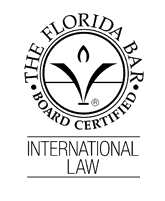Co-authored by Carlos Gimenez.
Just because you are importing a product from a party to the DR-CAFTA Free Trade Agreement, does not necessarily mean that the product will be granted DR-CAFTA treatment by U.S. Customs & Border Protection ("CBP"). Even if 95% of the product is made from components that all originate from DR-CAFTA party nations, that still may not be enough.
If the product has one component that originates outside of DR-CAFTA parties, whether or not the product will receive DR-CAFTA treatment will rely heavily on General Note 29(n), Chapter 61, Chapter rule 2, which states:
For purposes of determining whether a good of this chapter is originating, the rule applicable to that good shall only apply to the component that determines the tariff classification of the good and such component must satisfy the tariff change requirements set out in the rule for that good. If the rule requires that the good must also satisfy the tariff change requirements for visible lining fabrics listed in chapter rule 1 to this chapter, such requirement shall only apply to the visible lining fabric in the main body of the garment, excluding sleeves, which covers the largest surface area, and shall not apply to removable linings.Case in point, a client requested an alaysis of whether DR-CAFTA would apply to a garment produced of components that all originated in DR-CAFTA party countries, with one exception, the lace that was used to create a decorative front panel. The lace portion of the garment originated in Korea and it only accounted for roughly 17% of the material used overall. In this case, the analysis hinged upon whether or not the lace was the "component that determines the tariff classification", and whether the lace provided the "essential character" of the garment. In this case, the determination was that the lace was in fact the essential character, DR-CAFTA treatment was precluded, and a tariff of 16.5% was applied. If the garment was subject to DR-CAFTA treatment, rate of duty would have been FREE.
The moral of this story, if you want to ensure that the product imported is entitled to DR-CAFTA treatment, do not add any components that would jeopardize that treatment without seeking and receiving an expert opinion and/or a Binding Ruling from CBP. The worst thing that could happen is to work so hard to avail yourself of DR-CAFTA treatment, only to have to pay a double digit tariff for not doing your homework.
.jpg)



